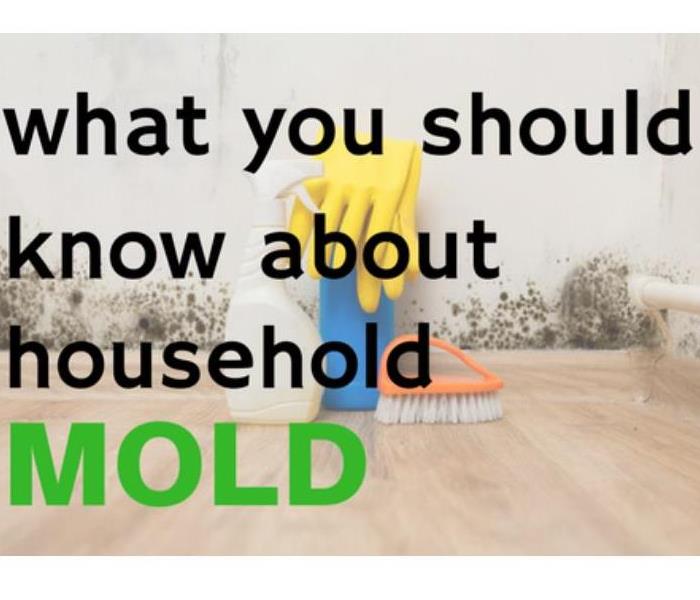What You Should Know About Mold
10/27/2017 (Permalink)
According to the Environmental Protection Agency (EPA), their are 10 things we should all know about mold.
- Potential health effects
- There is no practical way to eliminate all mold and mold spores in the indoor environment; the way to control indoor mold growth is to control moisture.
- If mold is a problem in your home or school, you must clean up the mold and eliminate sources of moisture.
- Fix the source of the water problem or leak to prevent mold growth.
- Reduce indoor humidity (to 30-60%) to decrease mold growth by:
- Venting bathrooms, dryers and other moisture-generating sources to the outside
- Using air conditioners and de-humidifiers
- Increasing ventilation
- Using exhaust fans whenever cooking, dishwashing and cleaning
- Clean and dry any damp or wet building materials and furnishings within 24-48 hours to prevent mold growth.
- Clean mold off hard surfaces with water and detergent, and dry completely. Absorbent materials such as ceiling tiles, that are moldy, may need to be replaced.
- Prevent condensation: Reduce the potential for condensation on cold surfaces (i.e., windows, piping, exterior walls, roof, or floors) by adding insulation.
- In areas where there is a perpetual moisture problem, do not install carpeting (i.e., by drinking fountains, by classroom sinks, or on concrete floors with leaks or frequent condensation).
- Molds can be found almost anywhere; they can grow on virtually any substance, providing moisture is present. There are molds that can grow on wood, paper, carpet, and foods.






 24/7 Emergency Service
24/7 Emergency Service
